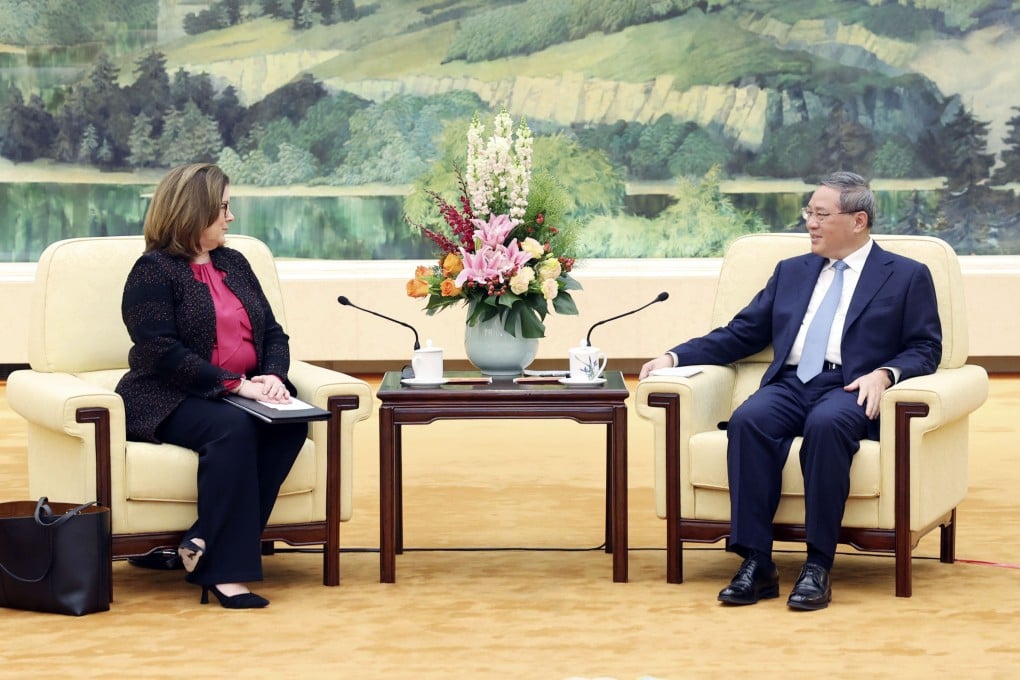US Chamber of Commerce cites concerns about ‘Made in China 2025’ after trip to Beijing
- Influential business group, while opposed to economic decoupling, is apprehensive about possible overcapacity in Chinese industries linked to the initiative
- During trip, delegation also ‘criticised ‘China’s use of heavy-handed commercial pressure tactics, digital protectionism, and intellectual property theft’, chamber says

The United States Chamber of Commerce has voiced apprehensions about potential overcapacity in a variety of Chinese industries linked to the nation’s ambitious “Made in China 2025” plan after a delegation visited Beijing this week.
The chamber is the largest American business lobbying group and the delegation, led by its chief executive, Suzanne Clark, aimed to address the complicated trade dynamics and challenges between the two nations as their economic relations come under increasing tensions.
In high-level meetings with Chinese government officials and business leaders, including Premier Li Qiang, the delegation discussed issues related to China’s non-market economic policies, digital protectionism, commercial coercion and intellectual property theft.
It also “conveyed business concerns regarding China’s use of heavy-handed commercial pressure tactics, digital protectionism, and intellectual property theft”, the chamber said in a release on Friday.
Launched by Beijing in 2015, “Made in China 2025” aims to transform the nation’s manufacturing sector by focusing on the rapid development of 10 hi-tech industries, including electric cars, telecommunications, robotics and artificial intelligence systems.
However, the initiative’s approach – which is fuelled by state subsidies, the dominance of state-owned companies, and the aggressive acquisition of intellectual property – has sparked controversy.
